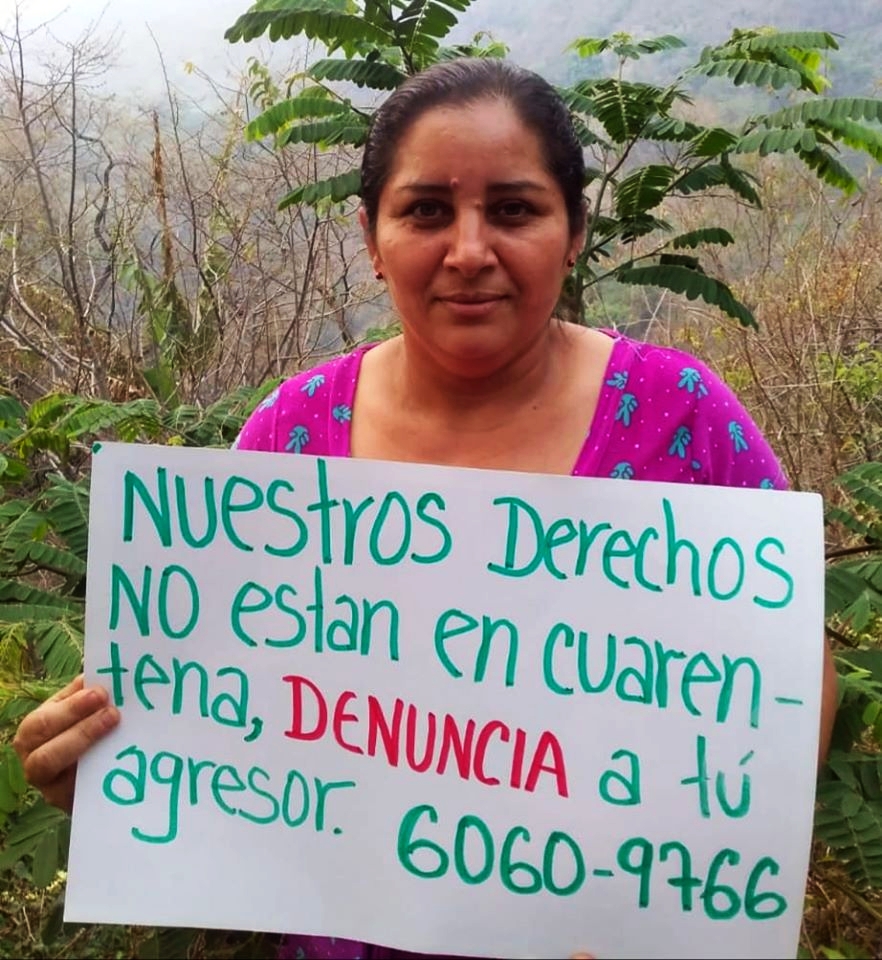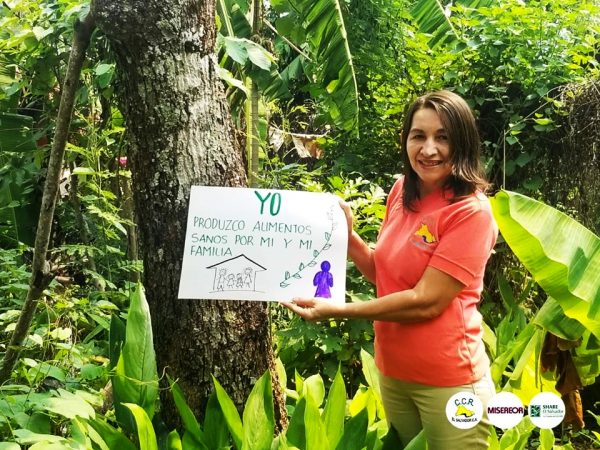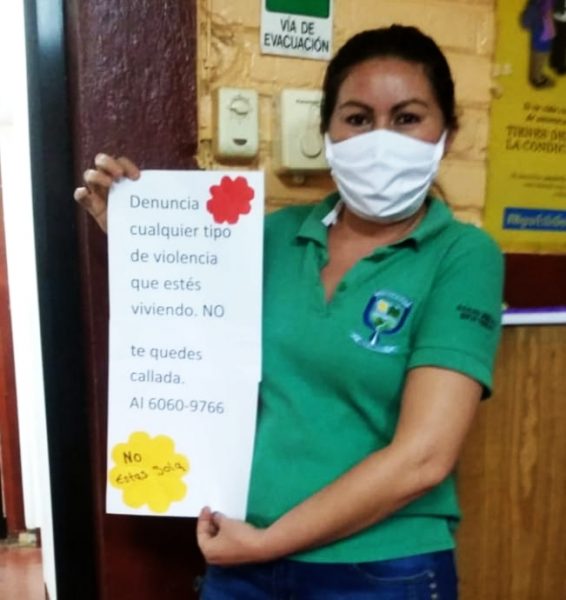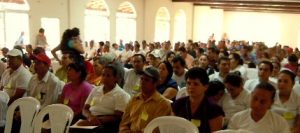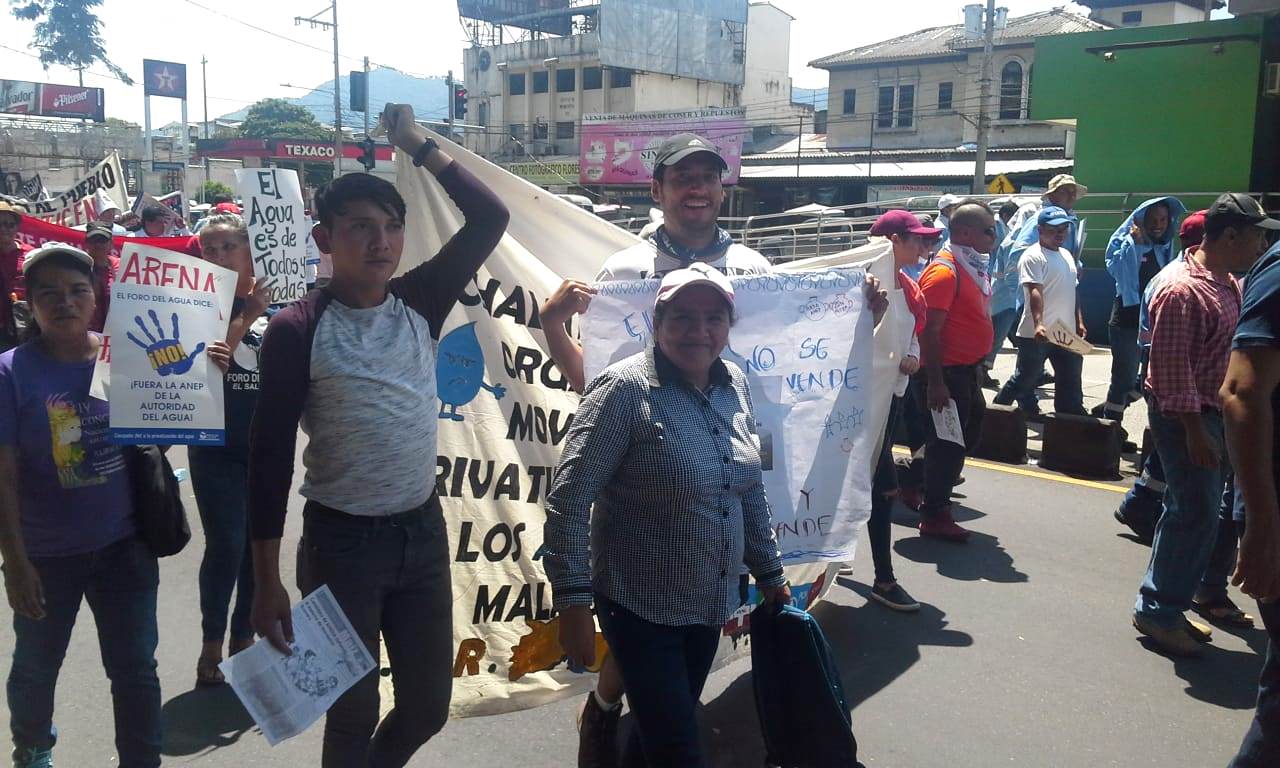CRIPDES Regional Support, Rights for Youth and Women
CCR work featured on Diario Co-Latino
Even though we are facing a pandemic and uncertainty about Government policies, the CRIPDES branch in Chalatenango, CCR keeps working and Diario Co-Latino reports about it:
“I have learned to prepare the soil and organic fertilizer, and also to plant more crops. These are difficult times but with organic gardens, we have different leaves that we can add to soups and thus feed ourselves. We save money since we don’t have to purchase vegetables, now that there is a shortage due to COVID-19. Growing our own food is important because we sow it with our hands and the message is that people should also cultivate and, if they don’t have plants, they can come here to ask for them…” said María Blanca Cruz Rivera, a resident of the canton Guarjila, Chalatenango.
María Blanca belongs to the “Juanita” Ecological School and says that she has learned to prepare organic fertilizer and to cultivate aromatic vegetables and spices, which improves family diet and nutrition, in the face of COVID-19 emergency measures, which have not allowed small farmers to carry out their agricultural activities.
With the campaign “Women with autonomy producing healthy food with their family to face the COVID 19 pandemic“, the Coordinator of Rural Communities and Repopulations of Chalatenango has resumed this sustainability initiative, explained Rubia Guardado, coordinator of the CCR.
The Coordinator of Rural Communities and Repopulations of Chalatenango (CCR) was born in 1988, recognized as the Association of Communities for the Development of Chalatenango (CCR). They work on various social projects that strengthen grassroots organization, citizen participation, gender equality and protection of natural resources.
The CCR campaign, which is carried out through social networks (Facebook and community radio spots), has objectives such as the production and consumption of products that give a better quality of life, with the strategic motto “Let your food be your medicine and your medicine be your food”, phrase of Hippocrates (father of Medicine). Guardado explains that the campaign seeks to raise awareness among people to have a strong immune system, in the face of the emergency due to the COVID-19 pandemic.
The CCR’s Women’s Secretariat links this campaign to food production through home gardens, as well as hygiene and prevention measures.
“We know that, to maintain a quality of life, the women of Chalatenango have opted for the production of our own food and medicine through edible plants grown in our gardens, with environmentally friendly methods that guarantee our food autonomy”, she said.
María Guardado, from the Guarjila community, Chalatenango, runs a diverse home garden planting carrots, chives, chili, tomato, cabbage, bean, coriander and blackberry.
“Planting our own products strengthens the family’s diet. My message to other women is that they should be encouraged to plant their crops. As for preparing home gardens, they must choose a place to locate it, where the sun rises and near the house to protect it from strong winds, verifying that the soil is adequate, or at least that there are no large stones and bugs”, suggested María Guardado.
For Rubia Guardado (…) situations such as climatic events, wars, disasters and pandemics such as COVID-19, generate risk of food shortage and puts families at risk, especially women.
“That is why the women of Chalatenango organize ourselves in agroecological schools to improve the production of food and medicinal plants in our home gardens, taking advantage of the resources we have and strengthening our food autonomy“, she said.
In addition to this campaign, the CCR, which currently works in 110 communities in Chalatenango, strengthens its objective of female leadership and defense of their rights by launching a campaign in coordination with CORDES and the Movement of Women’s Associations in Chalatenango to raise awareness about women’s rights through social media and community radios.
“We decided to launch this campaign in the context of the murder of Silvia Yesenia (Chalatenango) and Vanesa (Usulután), with messages about the different types of violence that can be emotional through screams, offenses or humiliation; physical violence, such as being pushed, hit or injured, as well as the most serious sexual violence and femicide, that is the murder of women who are being threatened during this quarantine”, said Rubia Guardado.
The initiative also shares information on the institutions that guarantee a life free of violence against women, such as the Section for Comprehensive Assistance to Victims of the Supreme Court of Justice and UNIMUJER-ODAC, of the Natonal Police, both instances trained to attend to the complaints that arise in the municipalities of Citalá, San Ignacio, La Palma, Agua Caliente, La Reyna and Tejutla, by calling to 2301-1814, 2301-1833, 2301-2352, and in Nueva Concepción UNIMUJER 2335- 7031 or writing to whatsapp at 6060-9766, with the slogan “Because violence is not in quarantine … Women in Chalate protect themselves and they denounce”.

